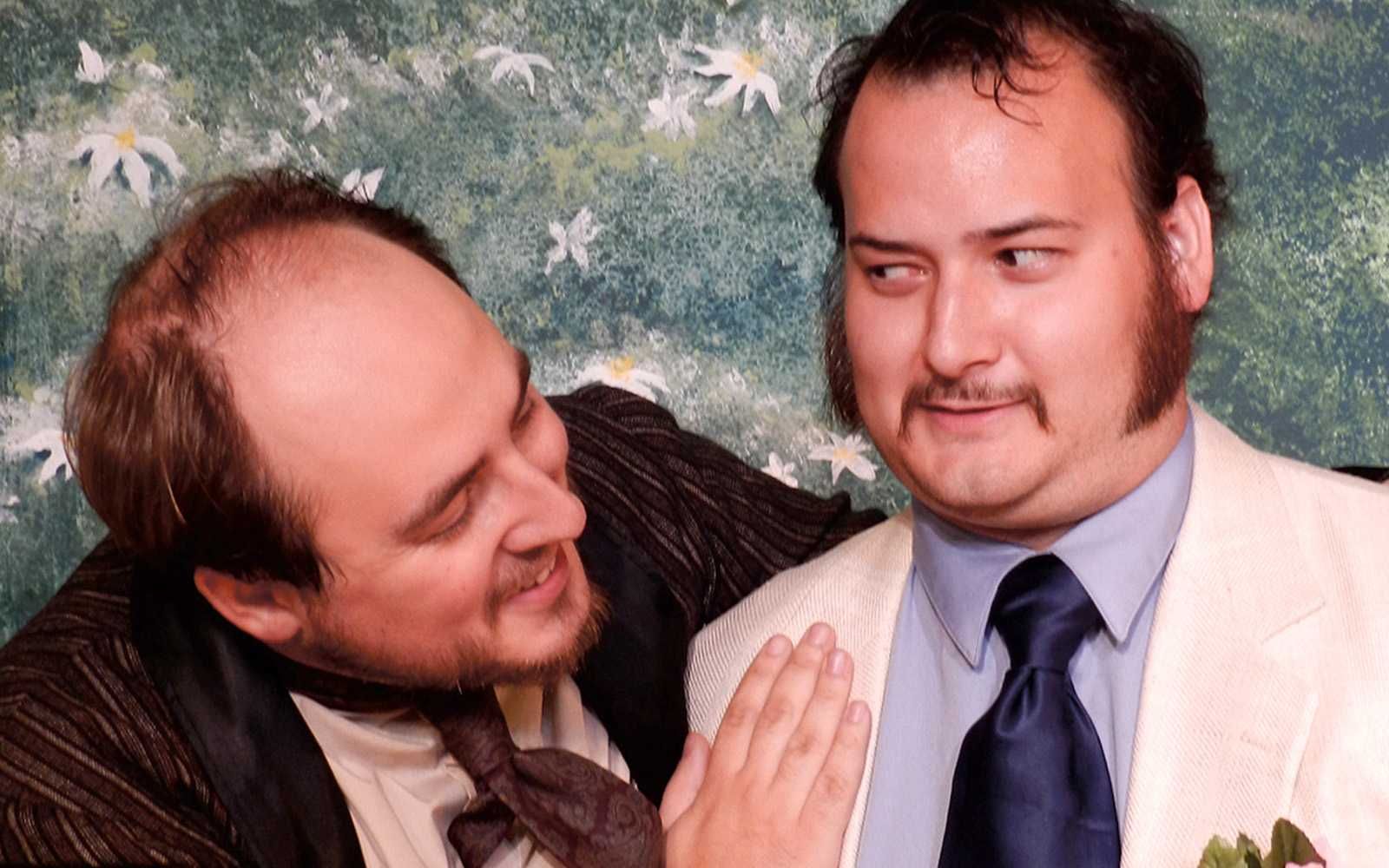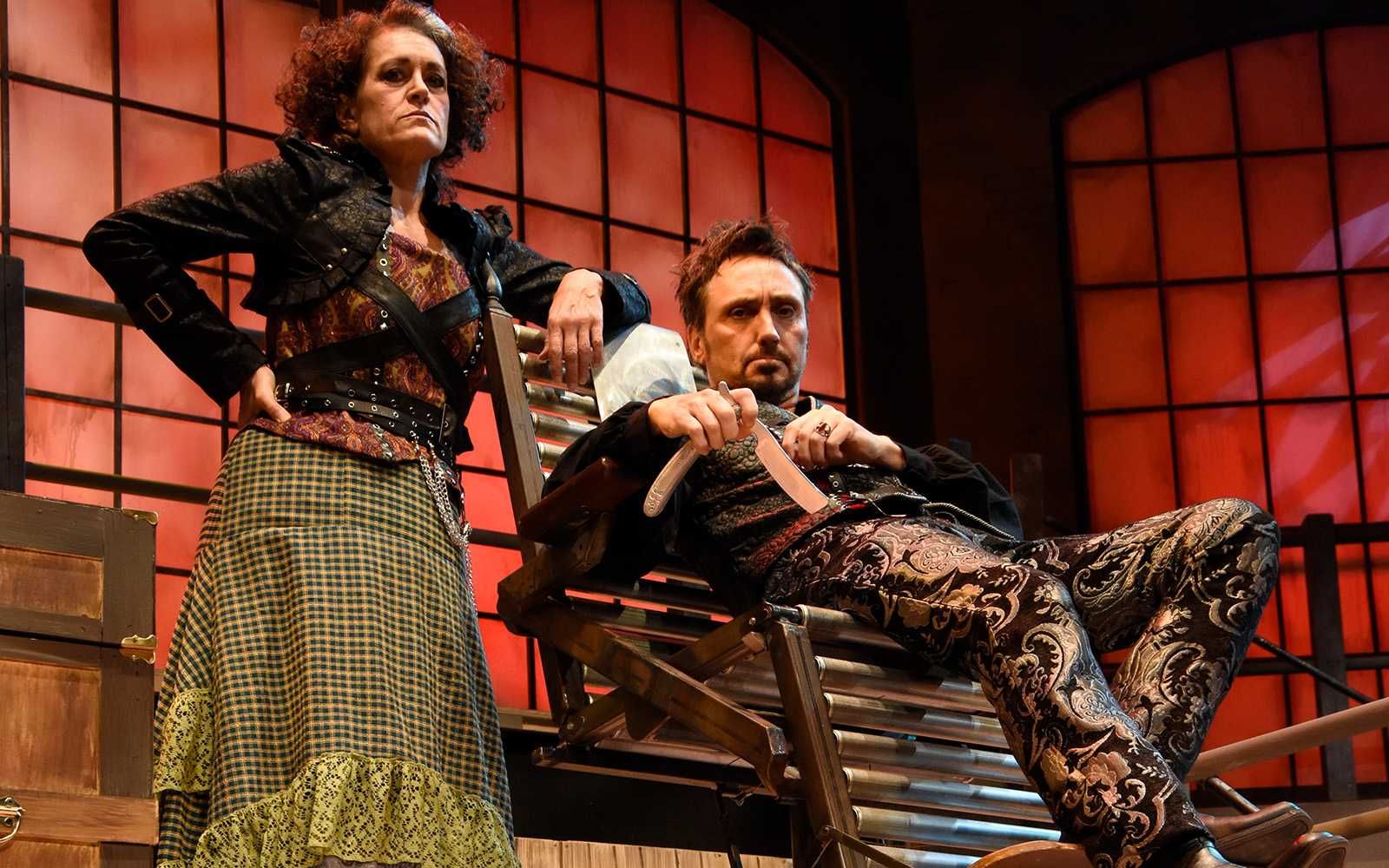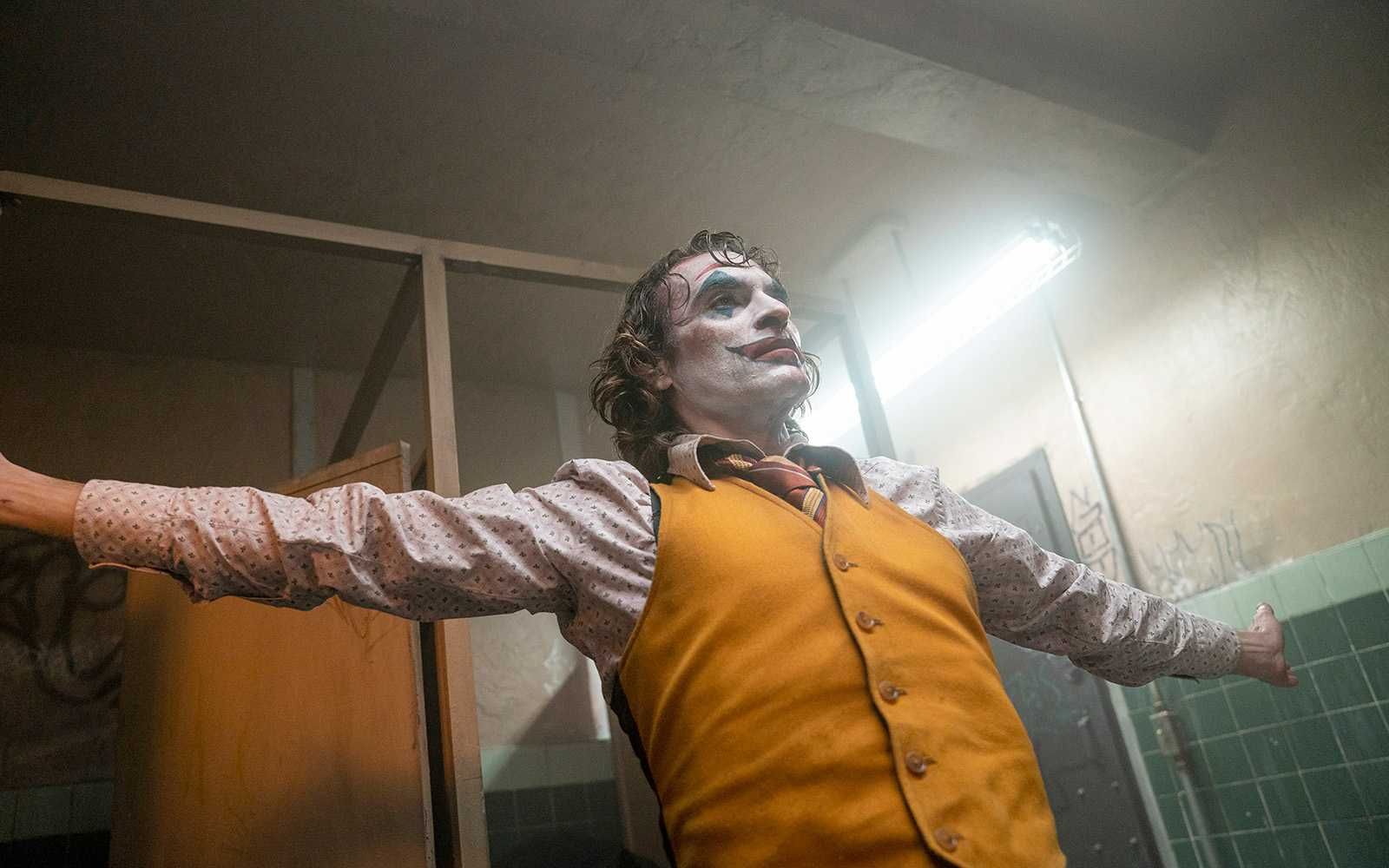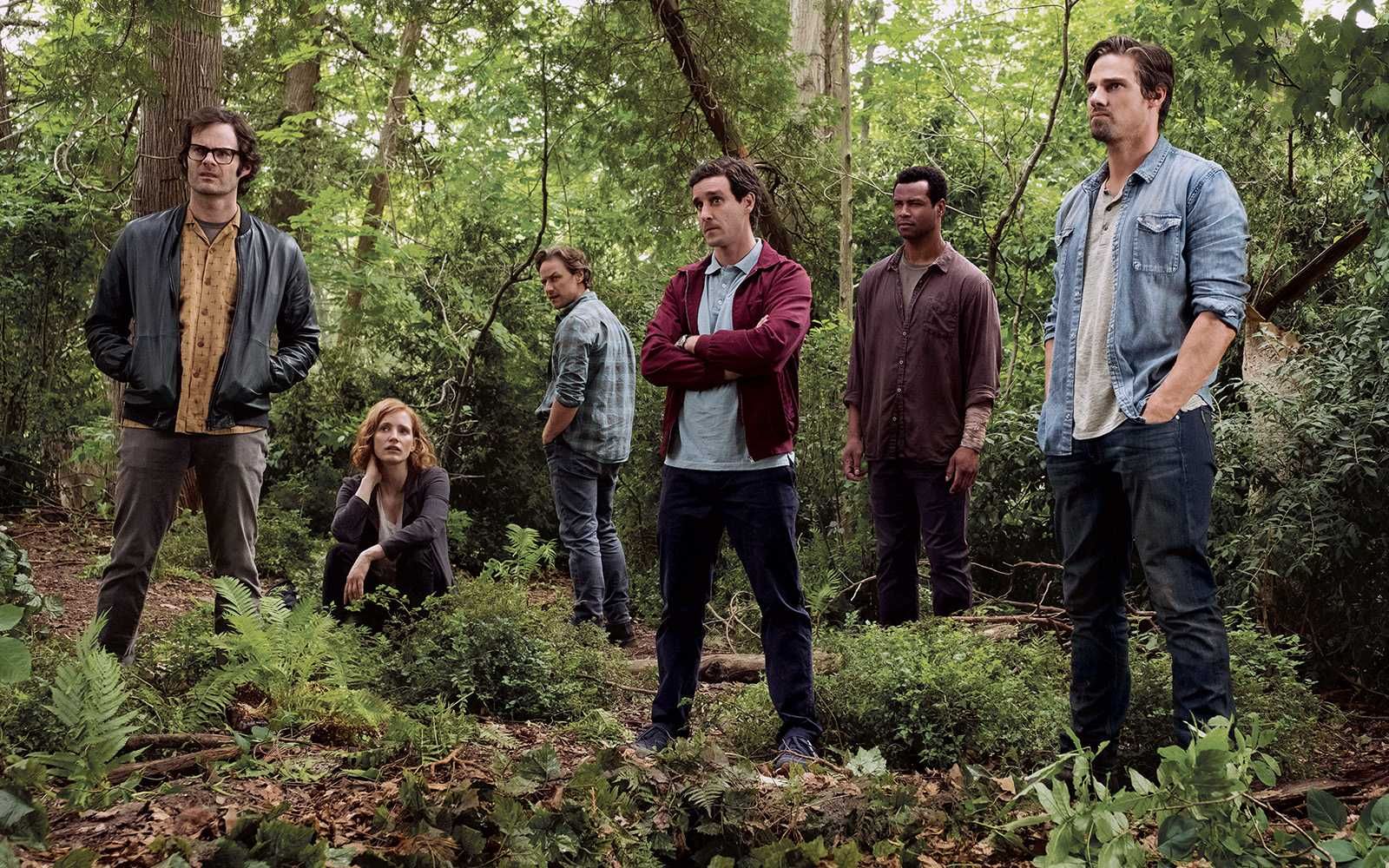The 2019-20 season at First Presybyterian Theater season kicks off this month with Oscar Wilde’s timeless classic The Importance of Being Earnest. This amusing story features various perspectives on the institution of marriage and the great depths we can reach to maintain our reputations.
Often noted as the legendary author’s most treasured work, The Importance of Being Earnest will either introduce or remind viewers of Wilde’s distinct voice. His unique descriptions of London society and the modern world are just as applicable today as they were when it was first published in the late-19th century.
Aaron Mann stars as Algernon, a playboy brimming with confidence and rarely at a loss for words. Mann boldy rejuvenates the character that director John Tolley associates the most with Wilde himself.
Chance Parker captures remarkably well the quieter, but equally clever and well-intentioned Mr. Worthing, Algernon’s acquaintance.
Together, Mann and Parker loop viewers into their world and their amusing (though elitist) lives as they carry the rapid-fire pacing of the plot and dialogue throughout the bulk of the first of the two acts.
In a play replete with irony and parallel plot lines, Mann and Parker are countered by two outstanding performances by Laura Laudeman and Kelly Maloney as Gwendolyn Fairfax and Cecily Cardew, respectively.
Laudeman’s consistent balance as a dutiful daughter and impassioned woman genuinely catapults the momentum of the first act. After intermission, Maloney highlights the naivete of Mr. Worthing’s ward Cecily, whose shift into adulthood has been overlooked by all of those around her.
As the tension rises among these four individuals throughout the second act, audiences are greeted with moments in the play where Wilde is all but snagging us by the collar and expressing what we think and how we are flawed.
One strong attribute of this particular performance is the presentation style where characters rarely speak in the direction of one another. The audience feels like they’re being addressed and discussed, which adds to the universality of this examination of human desires and fragility.
Through his seemingly bottomless bag of theatrical tricks, Wilde’s interwoven script lends itself to the audience in ways that other playwrights have not done and may never do. At the risk of drawing from a cliche, this play has everything. From Algeron and John Worthing’s first few lines, viewers can easily draw parallels not only to themselves, but also the themes of independence, loyalty, and even deception.
One of the funniest characters in this play is that of Aunt Augusta. Kate Black’s extraordinary version is not to be missed. In a role that is equal parts elitist and hysterical, Black enriches each scene with unparalleled authority and biting commentary.
Though it is a secondary plot, be sure to watch and listen closely to the words and interactions of Marsha Wallace as Miss Prism and Scott Rumage as Reverend Chasuble. While these two have relatively little stage time, they exude Oscar Wilde’s style and wit in perfectly timed jabs at relationships, love, and religion.
Rae Surface and her set design team have created another appealing and appropriate stage for a play so dependent on dialogue. Jeanette Walsh’s distinct costuming aligns well with the era of late 19th century London.
We live in a time where one can curate his or her own image out to the world in ways Oscar Wilde never dreamed possible. However, can we ever truly love ourselves or anyone else if we misrepresent ourselves to anyone, regardless of our justifications for doing so?
True love, perhaps Oscar Wilde was suggesting, is not satisfying the expectations of someone else. It is, on the other hand, acknowledging one’s own flaws and accepting the flaws of others as nothing more than a common attribute of the human condition.
The play is a really good read, but witnessing it first-hand through the stellar performances of this cast is unmatched.





